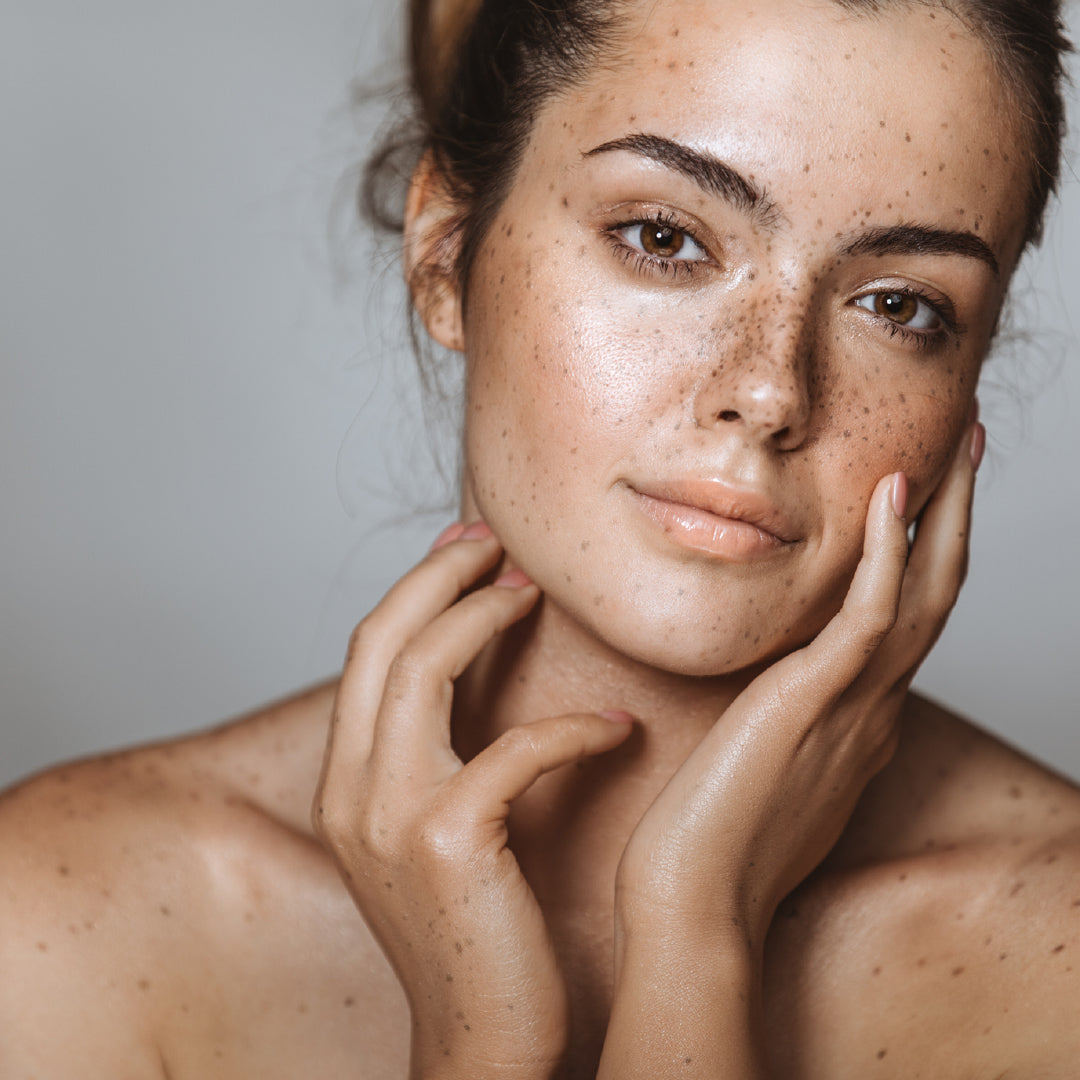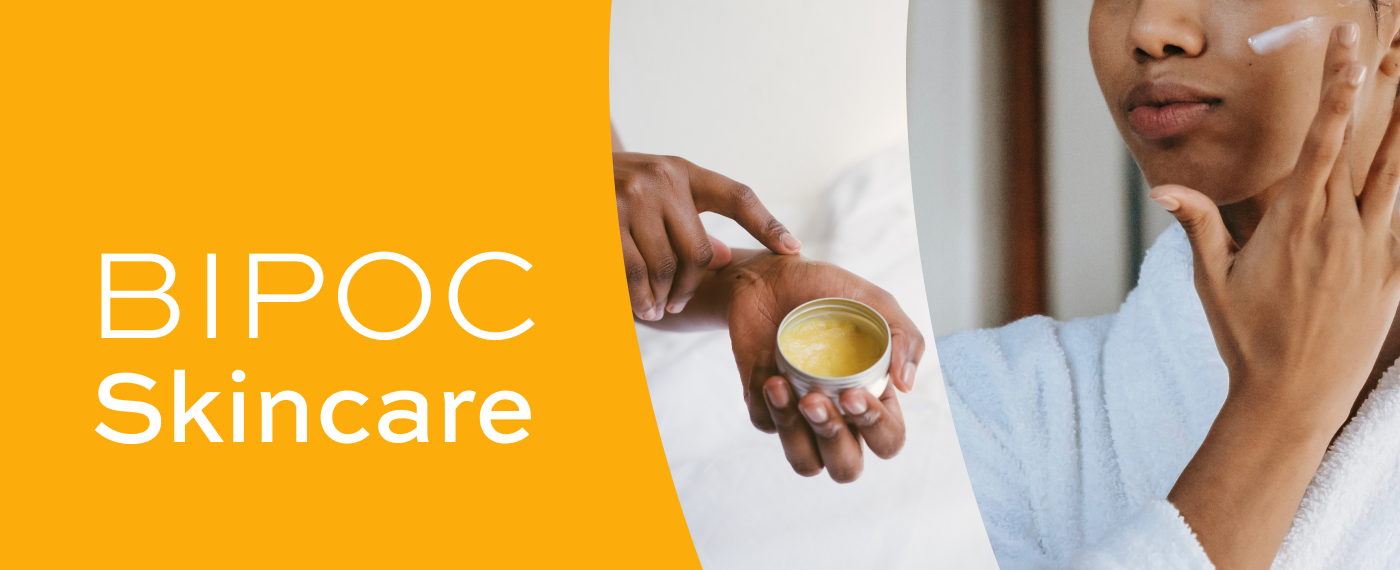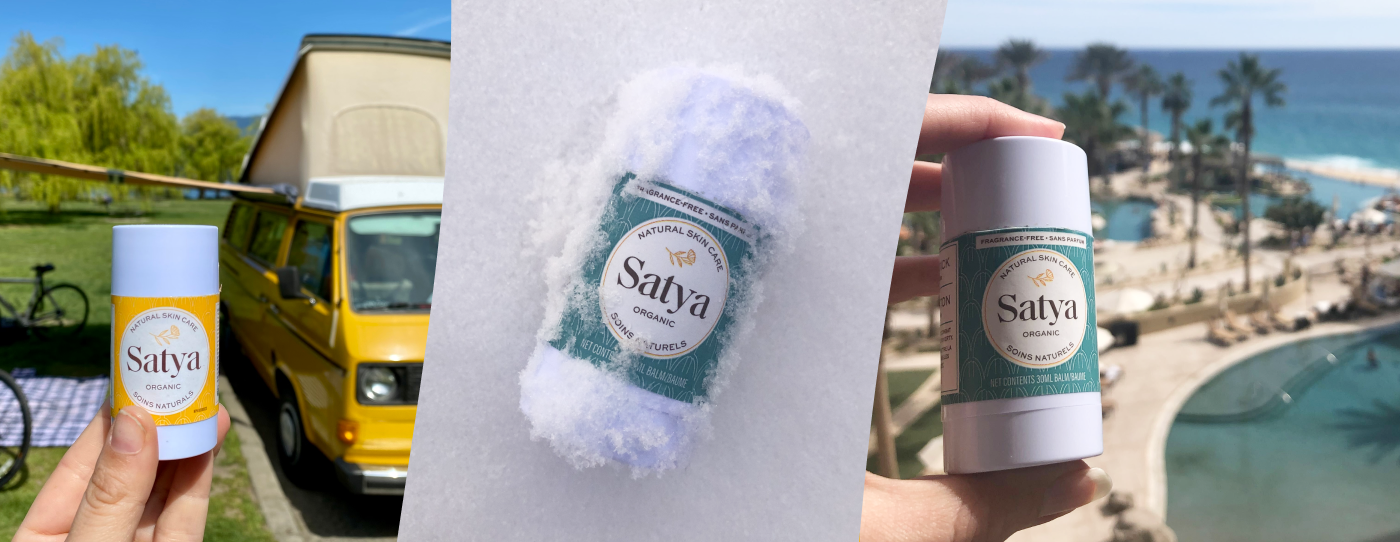
You’ve heard it all before and we’ll say it again—our skin is our largest organ. It absorbs 60% of what we put on it! That means that the ingredients found in all of the cleansers, lotions, creams, soaps, and treatments that we use can penetrate our skin and possibly enter our bloodstreams. On average, women use about 12 personal care products daily.
Many ingredients found in traditional skincare products contain thousands of chemicals, many of them harmful. Although these ingredients may appear in small concentrations, and may even be natural, the reapplication of a number of products is what makes this exposure so dangerous. If we’re using these products so routinely, we need them to be benefitting our overall health and wellbeing, not harming it.
Community groups and resources like the EWG’s Skin Deep database and documentaries like Toxic Beauty have worked hard to expose the problems lurking in the cosmetics and skin care industry. For consumers (especially those of us with sensitive skin issues), our best bet is to learn about common toxic ingredients used in skincare and to actively avoid them. To help, we’ve compiled a list of seven ingredients to look out for in products and easy ways to avoid them.
1. FRAGRANCE
Manufacturers add fragrance to skincare products in order to mask unpleasant odours. In the industry, fragrance is considered a ‘trade secret’ so companies can’t be forced to disclose the ingredients used to create them. This means that the term ‘fragrance’ can act as a placeholder for over 5,000 synthetic chemicals.
Fragrance, whether it be natural or synthetic, is a sensitizing ingredient that can irritate the skin and nose and cause reactions such as allergic contact dermatitis. With so many unknown fragrance compounds potentially being used, even in essential oils, it’s almost impossible for us to identify the allergens and/or toxins that our skin is being exposed to. To be safe, we recommend sticking to fragrance-free products, always!
2. SODIUM BENZOATE
Sodium benzoate is a common preservative found in a large range of personal care and food products. It’s main function is to extend the shelf life of products by preventing the growth of bacteria. Sodium benzoate doesn’t do much harm on its own, but when combined with common anti-aging ingredient vitamin C, it can produce a byproduct called benzene. Benzene is often found in plastics, dyes, rubbers, pesticides, detergents, and other chemicals. More importantly, it’s known to be a cancer-causing agent. The solution: avoid products that contain preservatives.
3. POTASSIUM SORBATE
Potassium sorbate is another chemical preservative designed to fight against the growth of bacteria in personal care and food products. Although considered safe by the FDA, allergic reactions and acute skin inflammation (e.g. redness, itchiness and hives) are not uncommon for people who become exposed to it. If you experience sensitive skin issues, it’s best to avoid this preservative by sticking to organic or natural products.
4. DIMETHICONE
Ah, silicone! The velvety, smooth-to-the-touch substance that’s commonly used as a moisturizing ingredient, alongside petrolatum, or petroleum jelly. Dimethicone is a silicone-based ingredient found in many skin and hair products, including popular eczema creams like CeraVe. Although it’s generally safe to use, its ability to create a protective barrier over skin is not always beneficial. When we develop a dependency on it, dimethicone can interfere with our skin’s natural barrier and trap bacteria, oils, sweat, and sebum under its surface. This can cause allergic contact dermatitis and become an issue for those of us with acne-prone or irritable skin.
5. EMULSIFYING WAX
Emulsifying wax is a substance that helps bind together oil and water. It’s found in many personal care products including skincare, hair care, and baby care. Although the substance may be derived from natural ingredients, extracting and formulating the wax can involve chemical processes that leave traces of toxins and/or carcinogens in the final product. It’s best to avoid this ingredient entirely, but if you do see it on your product labels, make sure it’s labelled as ‘Emulsifying Wax NF’ - this indicates that it at least complies with standards set out by the National Formulary.
6. FORMALDEHYDE
Formaldehyde is a colourless, strong-smelling gas that's used as a preservative in personal care and food products. If it’s not added directly as an ingredient, many shampoos, lotions, nail polishes, and body washes can contain substances that release formaldehyde into the air. Formaldehyde vapours can cause skin irritation and allergic contact dermatitis, and is carcinogenic when inhaled over long periods of time.
7. CETEARETH-20
Water is often added to products as a filler to lower costs, but since water and oil separate, emulsifiers are needed. Similar to emulsifying wax, Ceteareth-20 keeps water and oil ingredients combined. Because of its ability to attract and wash away dirt and impurities, and make cosmetics thick and creamy, it’s found in many personal care products. It’s generally safe to use, but Ceteareth-20 undergoes a chemical process that can leave it contaminated with cancer-causing substances. It also has penetration enhancing properties that makes our skin absorb these substances even faster. Your best bet is to use products like Satya Organic that contain no water at all, which eliminates the need for emulsifying ingredients.
It’s hard to have complete control over the ingredients used in our favourite skincare products. But a good rule of thumb is: keep it simple! Satya is made of five ingredients because we believe in the power of simplicity. Our hope is that by spreading this knowledge, we can help each other consume more consciously. Read the labels, listen to your skin, and choose skincare and beauty made from whole ingredients (like Satya)!





